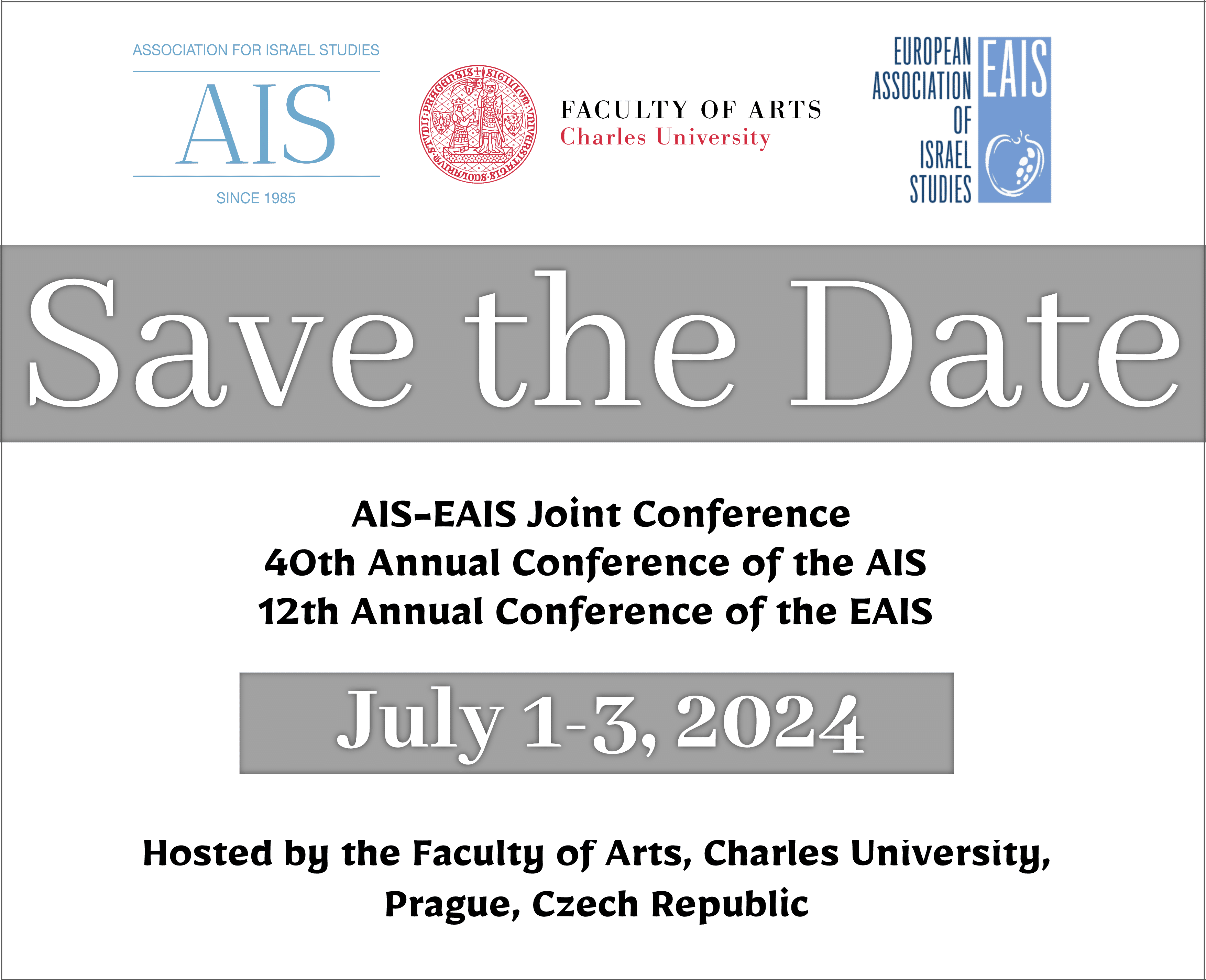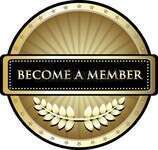
The Association for Israel Studies is an international scholarly society devoted to the academic and professional study of Israel. The Association's membership is composed of scholars from all disciplines in the social sciences and many in the humanities.
Condemning the Atrocities Committed by Hamas
The Association for Israel Studies (AIS) expresses its profound shock and horror at the inhuman brutality of the attacks carried out by Hamas. We are bound by grief and sorrow as we mourn the murder of over 1300 Israelis, including women, children, infants, and elderly people, as well as AIS members and their families, and citizens from various countries worldwide. Additionally, we are deeply appalled by the egregious taking of more than 150 hostages, comprising women, children, the elderly, and entire families and we call for their immediate and unconditional release.
Whatever one’s ideological position on Zionism, on Israeli policy, on the Israeli-Palestinian conflict, there can be no condoning, understanding, or acceptance of mass murder and the kind of terror that was perpetrated on Saturday, 7 October, and that is in effect continuing right now. The acts carried out by Hamas not only defy shared values of humanity and compassion but are also a blatant affront to the principles of peace, decency and civility that underpin the global community and academia. The indiscriminate and ruthless murder of civilians, and the abhorrent kidnapping of families, subjecting them to immeasurable suffering and anguish, represent a human tragedy on a global scale and an inconceivable violation of human rights.
The horrifying scale and nature of this vicious onslaught reveal nothing short of a grotesque disregard for the sanctity of human life and the dignity of the person.
In these moments of profound anguish and grief, we summon the collective conscience of the international community to stand unified, vehemently denouncing Hamas for orchestrating this dark chapter of terror and violence, and ensuring that such a human tragedy will never take place ever again, anywhere in the world.
Expressing Our Deepest Condolences to Professor Ilan Troen and Family
Dear AIS Members and Friends,
It is with heavy hearts that we share the deeply sorrowful news concerning Professor Ilan Troen, a foundational pillar of the AIS, its former President, a dedicated longtime board member, and the honored co-recipient of the 2023 AIS Lifetime Achievement Award.
Professor Troen's daughter and son-in-law were tragically murdered in a terror attack that took place yesterday in Israel, leaving our community deeply shaken and heartbroken.
In addition to this immense loss, Ilan's grandson is recovering from injuries sustained in the same attack. We, the AIS community, extend our heartfelt wishes for his swift and full recovery, and envelop the entire family with our thoughts and prayers during this unimaginably difficult time.
During this dark time, we extend our deepest condolences to Ilan, his wife Carol, and their entire family. They are firmly in our thoughts and prayers as we collectively mourn this tragic loss.
In these moments of profound grief and solidarity, let us come together to offer our support and compassion to Professor Troen and his family.
With heartfelt sympathy, SHELO TEDOU OD DEAVA
Expressing Our Deepest Condolences for the Tragic Loss of Dr. Hayim Katsman
Dear AIS Members and Friends,
It is with immense sorrow that we share yet more tragic news: Dr. Hayim Katsman – the distinguished winner of the 2019 Kimmerling Award for Best Graduate Paper – was murdered in his home in Kibbutz Holit on Saturday.
Dr. Katsman was an emerging scholar in the field of Israel Studies, having received his Ph.D. in international studies from the University of Washington's Henry M. Jackson School of International Studies in 2021. His research centered on the Religious-Zionist communities and current trends in Religious-Zionism and its relationship to radicalism.
His works have been featured in various scholarly publications, including the Israel Studies Review, and in edited volumes such as the "Routledge Handbook of Religion and Political Parties." He won the AIS Kimmerling Award for his paper, “The Hyphen Cannot Hold: Contemporary Trends in Religious Zionism," which he presented at the 2019 AIS Annual Conference at Kinneret College.
Beyond his academic achievements, Hayim was deeply committed to community service and engagement. His volunteer activities spanned various roles, including Co-Coordinator of the Israel/Palestine research group at the University of Washington, Board Member at The Center for Young Adults, Eshkol Regional Council, and committee member in Kibbutz Holit.
In these moments of profound grief, we remember Dr. Katsman for his invaluable contributions to our academic community. We extend our heartfelt sympathy to his family and close ones.
With sincere condolences,
Rafi Cohen-Almagor, AIS President
Csaba Nikolenyi, AIS Vice-President
Asaf Shamis, Executive Director
Statement regarding the unfolding events in Israel
Dear AIS Members and Friends,
We extend our thoughts and solidarity to all AIS members affected by the tumultuous events taking place in Israel. The past two days have witnessed intense conflict, and as you are acutely aware, Israel is engulfed in a state of war.
Many in the Israeli academic community have been summoned for active reserve duty. We also acknowledge that many families of the AIS members are navigating through perilous circumstances.
The impact of these events on the Israel Studies community is palpable and profound. The AIS Executive team is steadfast in our commitment to providing support to anyone within our community seeking assistance during this time.
The scope and tragic loss of life witnessed in these unfolding events is unprecedented.
We reiterate our unwavering commitment to aiding and supporting anyone in need during this challenging period. Should you require assistance or simply wish to reach out, please do not hesitate to contact us at ais@aisisraelstudies.org.
Sincerely,
Rafi Cohen-Almagor, AIS President
Csaba Nikolenyi , AIS Vice-President
Asaf Shamis, Executive Director
AIS Dissertation Completion Fellowship
The Association for Israel Studies announces a dissertation completion fellowship for outstanding doctoral students in any field of Israel Studies. The fellowship aims to provide support to doctoral students for the final stages of the completion of their dissertations.
Based in its commitment to fostering multidisciplinary research about Israel, these fellowships will constitute recognition of the contribution and potential of an emerging scholar. One fellowship, in the amount of $5,000, will be offered annually to an outstanding doctoral student, chosen by a committee of AIS-member scholars. The fellowship will be offered for a single year only. As a dissertation completion fellowship aimed at providing assistance for the final stages of doctoral work, the fellowship will not be renewable. Students are expected to complete their dissertations during the completion year.
The grantee will be asked to acknowledge the source of funding in all publications that rely on the funds of the AIS scholarship.
ELIGIBILITY
The AIS dissertation completion fellowship will be available to students at universities in any country who:
- Have completed all departmental and university requirements (obtain ABD status).
- Have completed an approved dissertation prospectus.
- Have completed at least two draft dissertation chapters (or one draft article for students in fields where the dissertation consists of three articles), confirmed by the dissertation advisor.
- Are current members of the AIS at the time of application.
- Eligible dissertations will be written in English or Hebrew.
Applications
Applications and should include:
- A cover letter (up to 1500 words) describing:
- The purpose, objective and rationale for the research project.
- The methodology or methodologies employed.
- Major findings of the dissertation and their importance/ contribution to the field of Israel Studies.
- A chapter of the dissertation.
- A bibliography (no more than 2–3 pages).
- A one-page timeline outlining the schedule for completing and successfully defending the dissertation within the fellowship year.
- Three letters of recommendation, one of which must be from the student’s doctoral adviser/supervisor.
- Professional CV and a full list of publications
- Status Confirmation Form to be completed by department chair or director of graduate studies
Applicants should mail a single PDF comprising all aspects of the application (with the exception of letters of recommendation) as an attachment to this address: AIS_Dis.htg7xugdbtics3lm@u.box.com by February 1 2024. Recommenders can submit their letters of recommendation by emailing them as attachments to the same email address.
Incomplete applications will not be considered.
The AIS will notify applicants of the AIS Academic Committee’s decisions by the beginning of April. For additional information please see:
Names of winners will be published on the AIS website.

AIS Statement regarding the Planned Judicial Reform Proposed by the Israel Government
The Association for Israel Studies views with grave concern the recent developments in Israel, including the looming changes in the state’s political and legal system, and the growing support for racism and incitement. As an academic association, we are committed to intellectual integrity and academic freedom—necessary foundations for any healthy and free society, and to the values of freedom, equality and pluralism, which must exclude any discrimination on the basis of religion, ethnicity, or gender. We believe that all efforts should be made to ensure that the rights and responsibilities upon which freedom of expression and the free exchange of ideas are based, and the checks and balances that are the underpinning of democracy—the precondition for free academic discourse—will continue to flourish in the academic study of Israel, in Israeli society, and in the Israeli body politic.
Contact us
Join the Association for Israel Studies mailing list:
"Newslink and New Books"
To submit or receive the latest information on resources, scholarships, events, new books and more, enter your information below.
